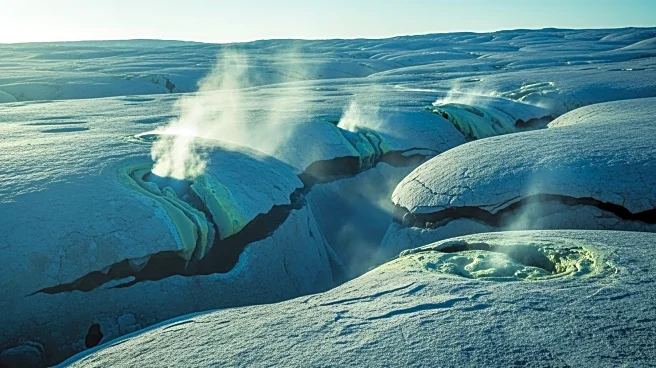Rapid Read • 8 min read
The Central Intelligence Agency (CIA) is a key component of the U.S. federal government's intelligence apparatus, established in 1947 by President Harry Truman. Its primary mission is to collect and analyze international intelligence to enhance national security and prevent threats such as terrorist attacks. Historically, the CIA has been involved in significant global operations, including interventions in Iran, Cuba, and Chile. Post-9/11, the agency has focused on counterterrorism efforts, particularly against groups like al-Qaeda and ISIS. The CIA operates under the oversight of the Director of National Intelligence and is subject to congressional oversight through committees such as the House Permanent Select Committee on Intelligence and the Senate Select Committee on Intelligence.
AD
The CIA plays a crucial role in safeguarding U.S. national security by providing intelligence that informs policy decisions. Its activities have significant implications for U.S. foreign policy and international relations. The agency's work in counterterrorism is vital for preventing attacks on U.S. soil and interests abroad. However, some of its methods, such as 'enhanced interrogation techniques,' have sparked controversy and debate over ethical and legal boundaries. The CIA's ability to adapt to new threats and technologies is essential for maintaining its effectiveness in a rapidly changing global landscape.
The CIA is likely to continue evolving its strategies and technologies to address emerging threats. This includes enhancing its cyber capabilities and expanding its focus on non-traditional security challenges such as climate change and pandemics. The agency's future operations will also be shaped by ongoing debates over privacy, civil liberties, and the ethical implications of intelligence activities. Congressional oversight and public scrutiny will play critical roles in shaping the CIA's policies and practices.
The CIA's history and operations raise important questions about the balance between national security and individual rights. The agency's involvement in covert operations and its use of controversial interrogation techniques highlight the ethical dilemmas faced by intelligence agencies. As the CIA continues to adapt to new challenges, it must navigate the complex interplay between transparency, accountability, and the need for secrecy in intelligence work.
AD
More Stories You Might Enjoy












